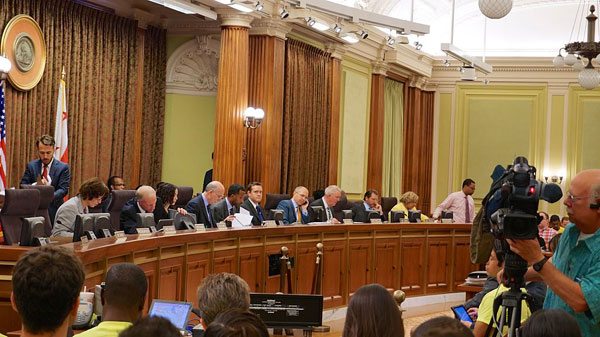
April 22, 2018; Washington Post
Few would contest that our public school systems should be accountable to the communities they serve. But the issue of who will best represent that community has become quite controversial as school reform plows forward. In many cases, policymakers at the federal, state, and local levels concluded that locally elected school boards led to struggling educational systems. Ardent reformers created new accountability models that replaced direct local control. As they did so, they may have forgotten the need to gather good information about school performance that might be used to hold schools accountable.
Schools in Washington, DC, have been the proving ground for many of the choice-based school reforms that have been central to national efforts to improve education. Using test scores as their yardstick, supporters of the reform agenda claimed remarkable improvement, but the results seemed less reliable as evidence of mismanagement and data manipulation emerged. School personnel were found to have rigged test results under the pressure of a system that demanded constant improvement. High school graduation rates were found to have grown only because the district manipulated and ignored its own requirements.
With this much controversy and scandal surrounding their school system, the members of the DC Council are concerned that even basic data are unavailable. In the belief that accountability begins with having accurate and timely information, the Council is debating a bill that would establish a city agency responsible for gathering accurate data about their school district’s operations.
Sign up for our free newsletters
Subscribe to NPQ's newsletters to have our top stories delivered directly to your inbox.
By signing up, you agree to our privacy policy and terms of use, and to receive messages from NPQ and our partners.
Council Member Mary Cheh told the Washington Post that a new city agency was needed because “we have been getting bad information—some of it just false, some of it misleading, some of it incomplete, and we can’t get a handle on what to do if we don’t know what’s happening.”
The importance of accurate and well publicized data was illustrated by retired educator and blogger G.F. Brandenburg, who examined results from the National Assessment of Educational Progress, known as the nation’s educational score card, for the past two decades. Looking at data for fourth- and eighth-graders that could be broken down by ethnicity he found that “in every single one of twelve sub-groups, the rate of change in scores was worse (i.e., lower) after 2007 (when the chancellors took over) than it was before that date (when we still had an elected school board).” So long as this data was not publicly available, school leaders could tout their progress and claim their controversial strategies were succeeding.
For the DC City Council, allowing local oversight to be meaningful requires the ability to objectively know what works and what doesn’t. As councilmember-at-large Robert C. White Jr., who-co-introduced the bill, wrote in a statement, “Creating an independent education research entity will distance education from politics and ensure that the council has the tools it needs to perform oversight over our schools.”
With disruptive change a hallmark of school reform efforts, there’s a need for accountability. Every child deserves the best possible education and each year of inadequate schooling is a lost year that cannot be replaced. The Council’s willingness to invest in good data is a step in the right direction, but it needs to be matched with a willingness to let the data tell the story and not be managed or manipulated.—Martin Levine










